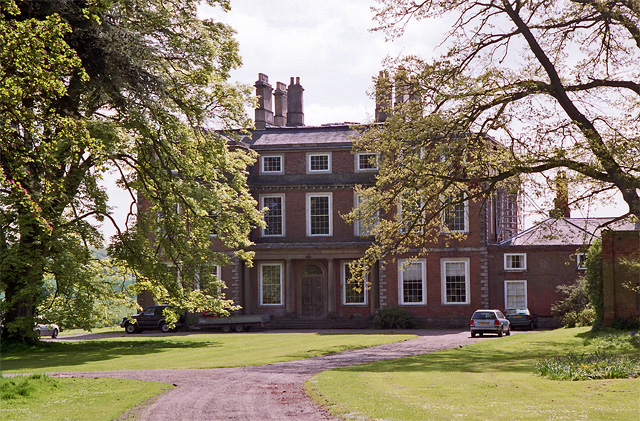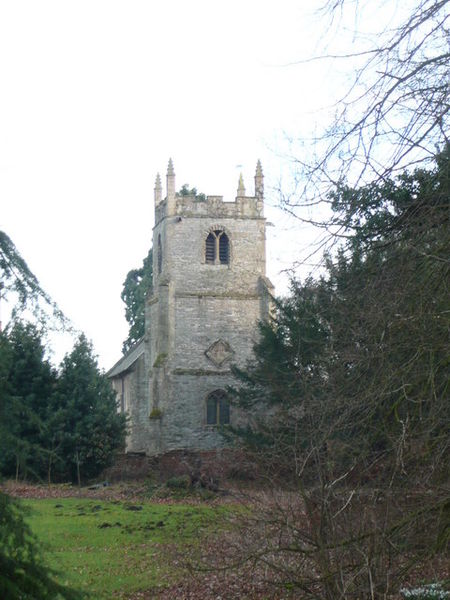
March 28, 2014, by Lucy
Getting into the archive: the Pegge-Burnell diaries
Over the last few weeks I’ve been spending time at Nottinghamshire Archives looking through some of the documents of interest that we’ve identified from online catalogues searches. These potentially contain information on extreme weather events of the past that will be included in our database.
Pegge-Burnell of Winkburn
One of the largest collections of documents that I’ve worked on so far are the Pegge-Burnell diaries. These can be found under the reference DD/CW/8c/5 and cover the period 1748 to 1836, although regular weather observations begin c. 1785. The collection includes diaries for most years in that period and each contains almost daily brief observations on the weather. These are combined with notes on agricultural operations, the planting of crops, the timing of the harvest and natural events like hearing the first cuckoo, and the author’s health (he suffers from gout throughout and from ‘bad eyes’ for a time which makes his writing a little difficult to decipher!) and that of his family and staff.
I believe that the main author of these diaries is Peter Pegge-Burnell of Winkburn Hall, near Newark in Nottinghamshire (feature image). Peter Pegge inherited the Winkburn Hall estate c.1770 after the death of Darcy Burnell, the last of the Burnell family. Numerous people had come forward with a claim to the estate but Peter Pegge obtained a decree from the Lord Chancellor that he was entitled to the estates and, in accordance with the will, took the name and arms of Burnell. In 1785 a successful new claimant came forward in the form of Richard Bristowe who became co-heir and also took the name Burnell. In 1813 he sold his half of the estate to Peter Pegge-Burnell who continued to live at Winkburn until his death in 1836 at the age of 85. He was succeeded by his nephew Broughton Steade, also a diarist, and resident of the linked estate of Beauchief Hall near Sheffield, who also assumed the name Pegge-Burnell (you can see that it’s quite difficult to work out who was who!).
Pegge-Burnell and the weather
It is evident from the diaries that Peter Pegge-Burnell led a farming family and estate, and was therefore particularly interested in day to day weather as it affected operations on the farm and wider estate. Pegge-Burnell is quite a pessimistic character and the comments on the weather do tend toward the negative! The diaries highlight the subjective nature of descriptive weather observations but also I hope illustrate their value, as it is still possible to identify days, weeks and months when the weather at Winkburn was particularly trying. Most of the observations are local, but there are occasional references to other places, the wider area (floods on the River Trent), and the country as a whole. All types of extreme weather are mentioned in the 88 year period; snowstorms, ice, frost, flood, drought and water shortage, storms of wind and rain, thunder and lightning.
The weather of 1799
The diary account of 1799 is particularly emotional and, at times distressing.
- 31 January – very cold and dark, […] began to snow small snow but fast about half past three & continued so to do the whole night & the wind at times very high & the snow much drifted – this hath been the coldest month & much fodder consumed & a most severe winter either too – my large family is almost all ill of colds & bad coughs – the feathered tribe have been great sufferers from the weather &c &c –
- 1 February – This month began in the most winterly & severe stile [sic], frost, snow and a high wind – Lord save us & have mercy on the poor, a worse night & day I have never beheld, froze very hard […]
- 11 February – a most shocking day of wind, snow & rain – the most – the severest season I ever knew
- 23 February – large flood upon the Trent
- 14 March – terrible to relate frost & more snow – winter – winter
- 26 March – cold, rain &c months of the worst weather I ever knew, plenty of lambs this season so far but nothing for the ewes to eat
- 28 March – hail and snow
- 30 March – a very hard frost & flying snow – a dreadful season this – this night the meat & milk frose
- 31 March – still a most severe frost, wind high – poor lambs dieing from cold & want of suck. Oh what is to become of us this season – god only knows – but his will be done
- 14 April – a fair day but very cold, the ground a perfect sponge & no seed yet in, sheep almost starving, want of meal – the ground being both black with wet and cold – this the latest season and worst I remember […]
- 21 May – black & cold
- 23 & 24 – wind extremely high did much damage
- 26 May – the least grass ever known, wheat looks ill
- 31 May – This hath been a gloomy cold and black month, gardens and pastures, the latest corn known
- 17 June – a severe white frost as cold as xmas & very dry
As more sources covering the same time period are collected, we will be able to cross reference them with the Pegge-Burnell diaries to build up a better picture of the winter and spring of 1799 as well as other specific extreme weather events.
More information
On Winkburn Hall: http://www.nottshistory.org.uk/articles/winkburn1933/winkburn2.htm
On Beauchief Hall: http://www.delasallesheffield.co.uk/history.asp
On the Pegge-Burnell papers: http://www.nationalarchives.gov.uk/a2a/records.aspx?cat=157-ddcw&cid=0#0
If anyone knows more about Peter Pegge-Burnell of Winkburn I would be delighted if you would get in touch.


very evocative diary entries!
Great to see more facsinating materials emerging from the Nottinghamshire archives- these series of diaries are of particular use for charting the impacts of extreme weather as viewed through the eyes of one or two individuals over extended periods of time, lifetimes in fact. The excerpts above also illustrate just how challenging severe winters could be (notwisthstanding Pegge Burnell’s pessimistic character!).
[…] Diary of Peter Pegge-Burnell, Winkburn, Nottinghamshire (DD/CW/8c/5/35, Nottinghamshire Archives) […]